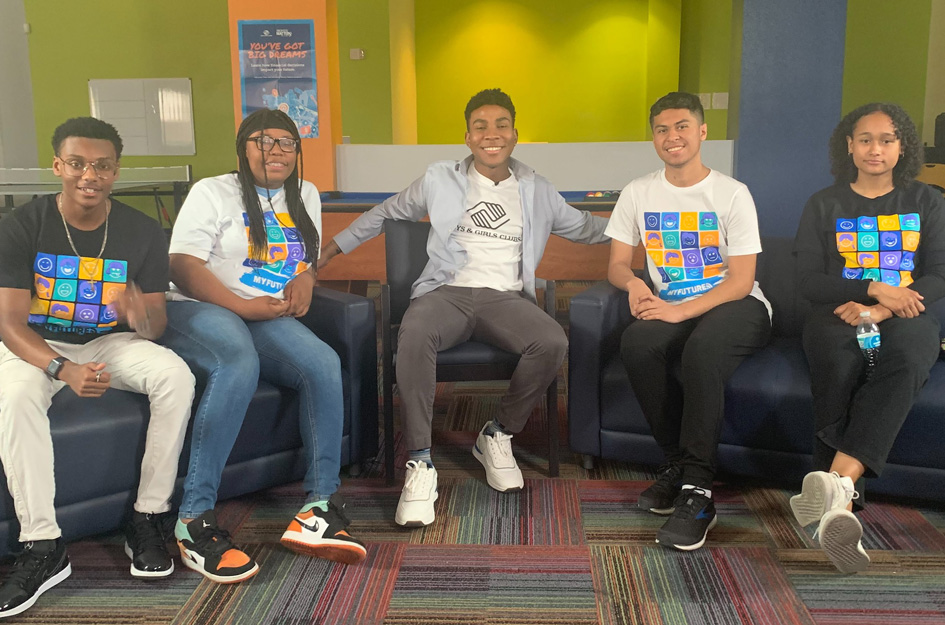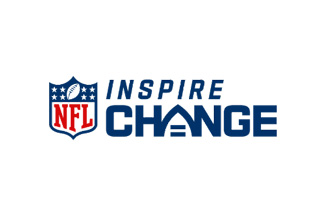

Teens today care about what is happening socially and politically – from racial equity and gender equality to rising teen mental health needs. A group of Boys & Girls Club teens recently shared their personal experiences and perspectives on these issues, and how they think their generation is ready to inspire change.
Growing up can be hard on a young person of any generation, but today’s kids and teens are facing an ever-evolving pandemic, racial inequality, social pressures online and systemic inequities that create barriers to success. Unsurprisingly, data shows that mental health concerns among young people are on the rise.
Clubs equip young people with the skills they need to manage their emotions and build resiliency so they can engage in every opportunity that comes their way. Partners like the NFL are working with Clubs to support critical conversations with America’s youth around social justice priorities and other issues impacting young people.
What are some of the main issues today’s teens care about?
A panel of teens from the Boys & Girls Clubs of Southern Nevada recently shared their thoughts on these topics during the “Inspire Change Town Hall” as part of Boys & Girls Clubs of America’s partnership with the NFL. Here’s what Club teens had to say:
The teen panelists know racial injustice all too well, with most having a core memory from their childhood that has stayed with them.
For DeMelle, 17, it was the first time someone commented on the color of his skin and he learned what racism was.
‘I remember one day when I was nine years old, I was playing on the playground and asked some kids if they wanted to throw a ball around. They said, ‘No, your skin is dirty. I don't wanna play with you.’ And I didn't know what that meant.
I went home and my mom catches me scrubbing my skin for 15 minutes straight. And she's like, ‘What are you doing?’ I told her how the kids told me my skin was dark and that I was dirty. My mom had to sit me down and tell me what that actually meant. She had to tell me about the world around me.”
Cherish, 16, was the new kid in middle school who told her crush how she felt about him. She didn’t expect his response –
‘He said, ‘I don’t like you. I don’t like Black girls. I don’t like the braids. I don’t like this, I don’t like that.’ That really hurt my feelings and I didn't want to wear braids anymore because of that. I wanted to straighten my hair, wear lighter makeup. I felt like just because I was Black, I wasn't beautiful. And it took me a long time to realize that I was beautiful because I was Black.”
And for Elisa, it was never feeling like she fit in due to her race:
‘Being light-skinned, when I was 12, I had a terrible identity crisis because I felt like I didn't fit in with the white kids. And then I didn't fit in with the Black kids because I didn't act like them. So, it's like where, where do I fit?”
The teen panel also spoke to the confines of gender roles still pervasive today – with pressure to be masculine or feminine, and dress or act certain ways. Elisa spoke to the paradox that modern women face:
‘If she dresses this way, she's asking for it and wants attention. If she dresses this way, she wants to be a boy. Like she can't express her femininity ‘correctly’ – you have to be feminine, but not too feminine.”
Nicolas, 15, spoke to societal pressures on men to not express emotions:
‘I am a young man and they tell me I have to be strong. I have to push my problems aside and just keep going forward. But sooner or later you're gonna go to that problem again. And how are you gonna handle it?”
Mental health was a theme throughout the panel, with the teens discussing the need for healthy coping mechanisms, how critical it is to check on the people in your life, and the importance of knowing when to get help or ensure someone else does.
Cherish spoke to her own experience losing a friend:
‘A year or two ago I lost someone to suicide and I didn't even know they were going through anything. They seemed fine – they were always laughing and smiling, but behind the scenes they were going through something that I didn't even know about. So that was one of the worst pains that I've ever felt in my life …. Now I tell the people I’m around ‘I love you’ every single day.
A word of advice: even if you're uncomfortable with spilling how you feel, when it gets super serious, come talk to someone because there's always someone out there who loves you and who’s willing to care for you.”
DeMelle shared how he’s made mental health check-ins a group activity with his friends:
‘It took a long time for me to figure out that when I'm not feeling okay, it's okay to go and talk to other people – and now I have fun with it. Whenever I know I'm feeling down, I'll ask my friends to go to Sonic, get a couple Oreo Blasts and talk it out. Funny enough, they're usually going through the same thing. It kind of has become its own support system. You know, we talk it out, talk it over, make sure everyone's okay.”
Nicolas thinks education is the biggest thing we could be doing as a society to address racial injustice and racism:
‘I feel like – Black History Month, Hispanic Heritage Month – they're nice and all, but I feel like in a way it blocks other people out. We have multiple races across the world and we don't have that many months to put races in. …In order to have full equality, we need to teach everybody about every race, about everyone’s problems, about how they became stronger in today's society.”
DeMelle agrees that education is needed to break down generational biases across race, gender, etc. – and that his generation and those to come are ready to change the status quo:
‘We have a new generation of people who are ready to learn and ready to listen.”
Through community service, leadership programs and elevating their voices on critical issues, Club kids and teens work together to create positive change and envision a better tomorrow.

We use cookies to enhance your experience. Learn More.
Boys & Girls Clubs of America uses cookies to give you the best experience on our website. Read about cookies in our privacy policy. By closing this message, you consent to our use of cookies on this device in accordance with our policy unless you have disabled them.